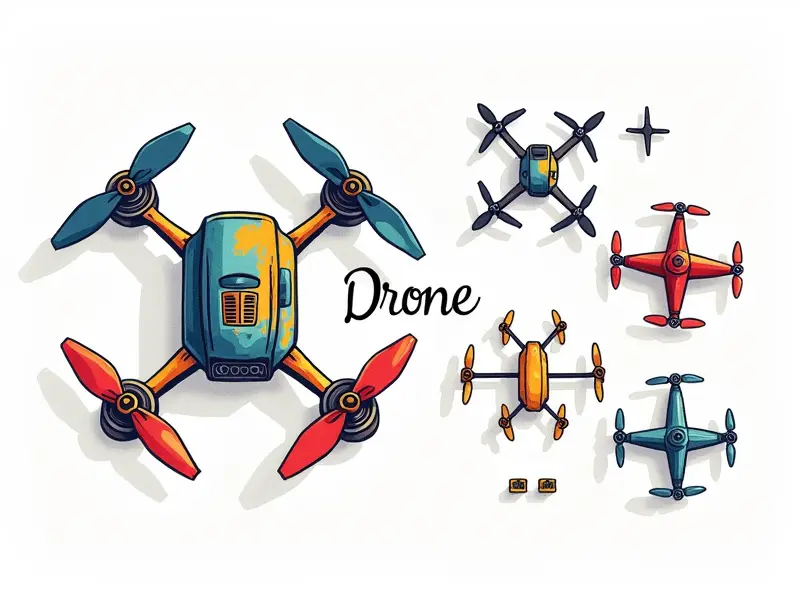Is drone flying legal?

Is Drone Flying Legal in Your Area?
Flying drones has become increasingly popular among hobbyists, enthusiasts, and professionals. However, with the rise of drone usage comes a myriad of regulations to ensure safety and privacy for everyone involved. This article aims to provide you with comprehensive information on whether it's legal to fly your drone where you live.
Understanding Drone Laws Today
The legality of flying drones varies greatly depending on your location, the type of drone you own, and how you intend to use it. In many countries, such as the United States, Canada, and the European Union, there are specific rules and guidelines set by aviation authorities like the FAA (Federal Aviation Administration) or EASA (European Union Aviation Safety Agency).
These regulations cover everything from registration requirements to airspace restrictions and privacy concerns.
Are FPV Racing Drones Legal Where You Live?
Flying drones in first-person view (FPV), especially for racing purposes, has gained significant popularity. However, the legality of FPV drone flying is not uniform across all regions. In some places, such as certain cities and national parks, flying any type of drone may be prohibited.
- Check local ordinances and regulations specific to your area before engaging in FPV racing.
- Contact the appropriate aviation authority or local government body for clarification on FPV legality.
Navigating Drone Laws for Hobbyists
Hobbyist drone pilots often have different legal requirements compared to commercial operators. While hobbyists are generally not required to obtain a remote pilot certificate, they must still adhere to basic safety and operational rules:
- Register your drone with the FAA if it weighs more than 0.55 pounds (250 grams).
- Fly only in Class G airspace or below 400 feet.
- Avoid flying near airports, restricted areas, and sensitive locations.
Can I Fly My Drone Legally Today?
To determine if you can fly your drone legally today, follow these steps:
- Check the weight of your drone: If it exceeds 0.55 pounds (250 grams), register it with the FAA.
- Verify airspace restrictions: Use tools like B4UFLY or Drone Zone to check for no-fly zones and restricted areas.
- Contact local authorities: Reach out to your city hall, parks department, or other relevant bodies to inquire about specific regulations in your area.
The Basics of Legal Drone Flying
Maintaining compliance with drone laws involves several key practices:
- Register Your Drone: Ensure your drone is registered if it meets the weight requirement.
- Obtain Necessary Certifications: For commercial use, obtain a remote pilot certificate from the FAA or equivalent certification in other countries.
- Understand Airspace Regulations: Familiarize yourself with Class G airspace and altitudes permitted for recreational flying.
Drone Regulations: What You Need to Know
The primary regulatory bodies that oversee drone operations include the FAA in the United States, Transport Canada Civil Aviation (TCCA) in Canada, and EASA in Europe. These organizations mandate:
- Pilot Certification: Commercial pilots must have a remote pilot certificate.
- Airspace Authorization: Obtain permission to fly in controlled airspace or near sensitive locations.
- Data Privacy Compliance: Adhere to privacy laws and regulations regarding data collection.
Is It Legal to Fly a Drone Nearby?
Flying drones near populated areas, airports, or restricted zones can be highly regulated. Always verify the following before flying:
- Airspace Restrictions: Use apps like B4UFLY to check for no-fly zones.
- No-Fly Zones: Avoid areas near airports, military bases, and other restricted sites.
- Sensitive Locations: Refrain from flying over schools, hospitals, or government facilities without proper authorization.
Essential Tips for Legal Drone Flying
To ensure you fly your drone legally and responsibly, consider these tips:
- Stay Informed: Regularly check updates from aviation authorities regarding new regulations or changes in existing laws.
- Respect Privacy: Avoid filming people without their consent and do not invade personal privacy.
- Practice Safe Flying: Maintain a visual line of sight with your drone at all times to prevent accidents or collisions.
Are RC Aircraft Legal Where You Live?
Remote-controlled (RC) aircraft, including drones and model airplanes, have their own set of regulations. While many rules overlap between drones and RC aircraft, there are some distinctions:
- Aircraft Classification: Distinguish your drone from other RC aircraft to ensure compliance with specific guidelines.
- Weight Limits: Some jurisdictions may have different weight limits for RC aircraft compared to drones.
Understanding Local Drone Flying Rules
To fully understand and comply with local drone flying rules, take the following actions:
- Contact Authorities: Reach out to your city's aviation department or equivalent body for detailed information.
- Review Official Websites: Visit official government websites such as FAA.gov or EASA.europa.eu for comprehensive guidelines.
- Join Local Drone Communities: Engage with local drone enthusiasts and hobbyists to gain insights from experienced flyers in your area.
Conclusion
Flying drones legally requires a thorough understanding of the regulations set forth by aviation authorities and local governments. By adhering to these guidelines, you can enjoy safe and responsible drone flying while avoiding legal issues or penalties. Always stay informed about updates in laws and best practices to ensure compliance with evolving drone regulations.

